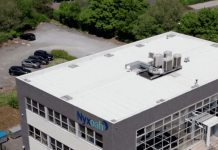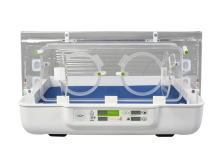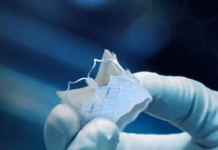International oncology company, Novocure, has announced an update regarding its phase 3 pivotal LUNAR trial of Tumor Treating Fields (TTFields) in stage 4 non-small cell lung cancer (NSCLC) following platinum failure. Following a routine review of the study by an independent data monitoring committee (DMC), Novocure was informed that the pre-specified interim analysis for the LUNAR trial would be accelerated given the length of accrual and the number of events observed, to date. The interim analysis included data from 210 patients accrued to the LUNAR trial through February 2021. After review of the interim analysis report, the DMC concluded that the LUNAR trial should continue with no evidence of increased systemic toxicity.

The DMC also stated that it is likely unnecessary and possibly unethical for patients randomized to the control arm to continue accrual to 534 patients with 18 months follow-up. The DMC recommended a reduced sample size of approximately 276 patients with 12 months follow-up which it believes will provide sufficient overall power for both primary and secondary endpoints. The DMC recommended no other changes to the design of the trial. Novocure remains blinded to all data.
The primary endpoint of the LUNAR trial is superior overall survival when patients are treated with TTFields plus immune checkpoint inhibitors or docetaxel versus immune checkpoint inhibitors or docetaxel alone. The final analysis will also include an analysis of overall survival in the immune checkpoint inhibitor and docetaxel treatment subgroups.
Novocure has notified the U.S. Food and Drug Administration (FDA) of the DMC recommendations and of its intent to submit an Investigational Device Exemption (IDE) supplement incorporating the recommended protocol adjustments.
“We are very pleased with the DMC recommendations, which we believe support the potential for TTFields to make a significant difference in treatment outcomes for patients with non-small cell lung cancer, whether used together with immune checkpoint inhibitors or docetaxel,” said William Doyle, Novocure’s Executive Chairman. “The accelerated interim analysis with an encouraging outcome adds to the accumulating evidence of Tumor Treating Fields’ broad potential across a range of hard-to-treat cancers.”
“Combination therapy is a cornerstone of cancer care, and we believe using TTFields together with other cancer treatments, including immunotherapies, may lead to better outcomes for some patients,” continued Mr. Doyle. “We are very encouraged that, consistent with our expectations, the DMC concluded that TTFields exhibited no systemic toxicity. We will continue to develop TTFields as a limited toxicity backbone therapy upon which other standard-of-care and emerging cancer treatments can be added.”
Lung cancer is the most common cause of cancer-related death worldwide, and NSCLC accounts for approximately 85% of all lung cancers. It is estimated that approximately 193,000 patients are diagnosed with NSCLC each year in the U.S. and approximately 46,000 patients receive second-line treatment for stage 4 NSCLC each year in the U.S. Physicians use different combinations of surgery, radiation and pharmacological therapies to treat NSCLC, depending on the stage of the disease. TTFields is intended principally for use together with other standard-of-care treatments, and LUNAR was designed to generate data that contemplates multiple outcomes, all of which Novocure believes will be clinically meaningful.
“The completion of the LUNAR interim analysis is an important milestone for Novocure,” said Asaf Danziger, Novocure’s CEO. “We are grateful to the DMC members for their diligence, guidance and support, and are looking forward to working closely with the FDA on amendments to the protocol given the DMC’s recommendations. Pending regulatory approval, the recommended protocol adjustments could accelerate trial completion by more than a year. We look forward to sharing final data from the LUNAR trial as quickly as possible.”






